Project: ‘Why won’t you Marry me’ by Ines Borovac
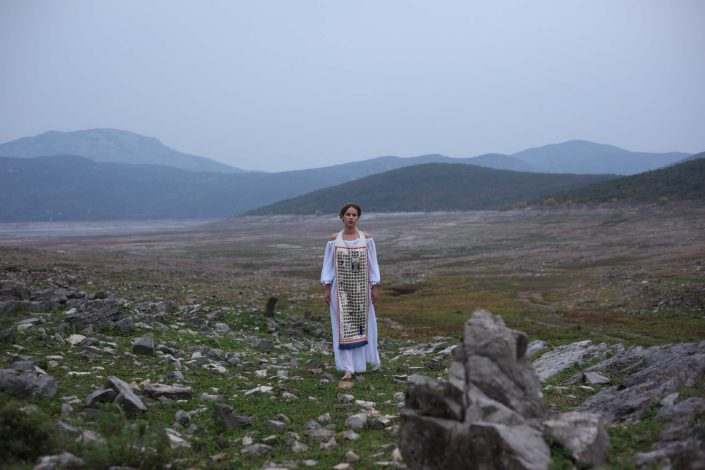
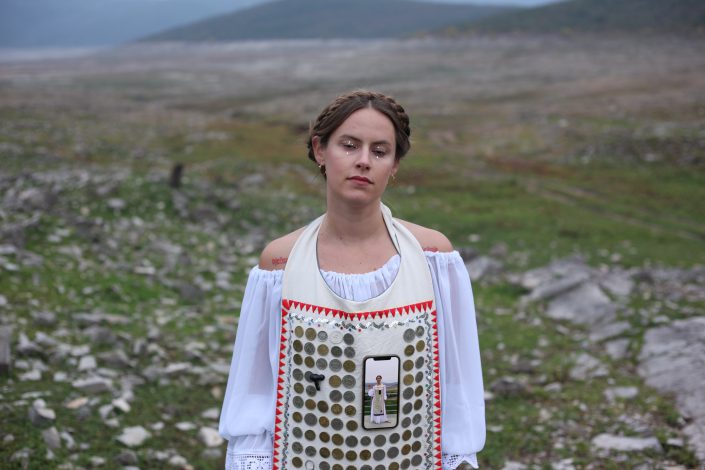
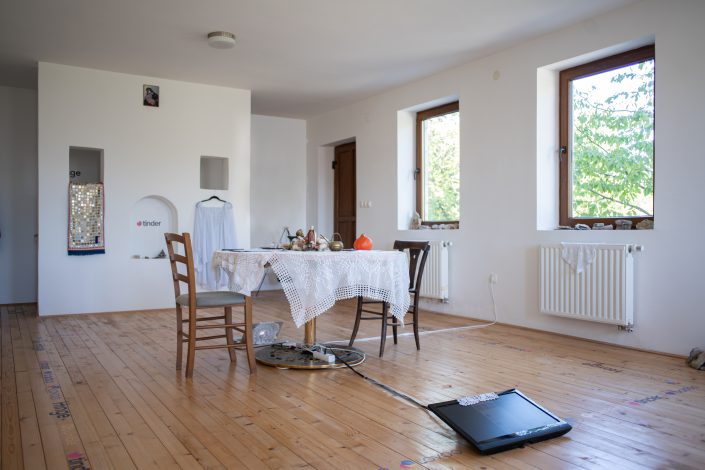
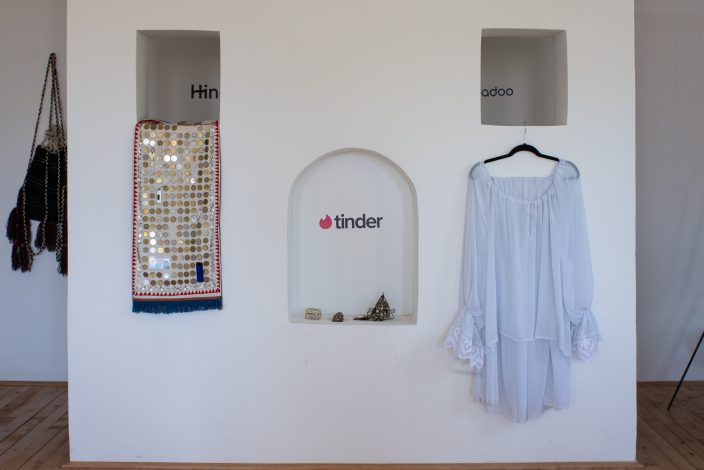
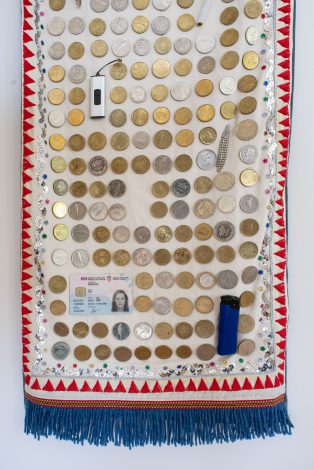
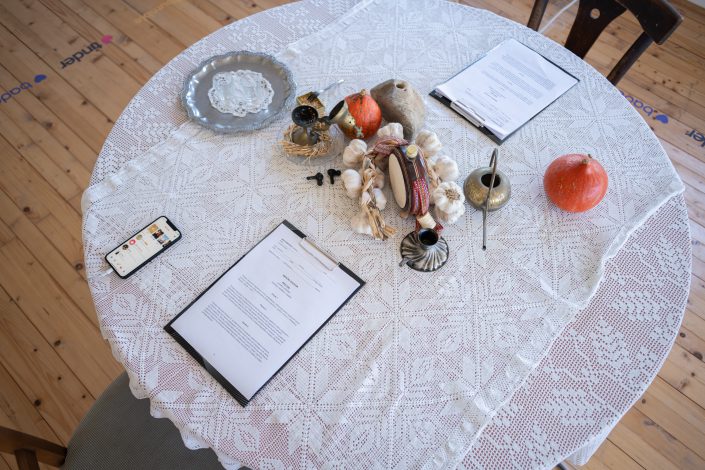
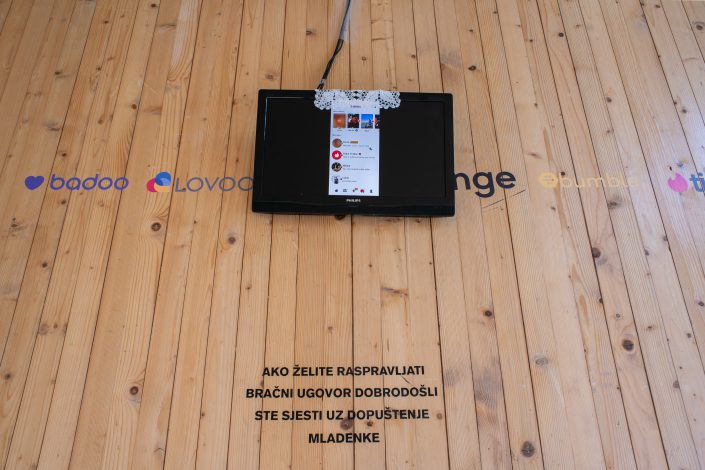

In her artistic and design practice, Ines Borovac (HR) infiltrates scenarios and spaces infused with social contracts to make embodied propositions for speculative futures. At KAMEN, Borovac researched Balkan marriage traditions, fabricated her own version of a traditional wedding dress, and developed a prenuptial agreement based on her desire to redesign patriarchy out of the marriage contract. With her performance-research Why wont you Marry me? she created a setting in which participants, live and on dating apps, were welcomed to discuss her conditions for marriage, one-on-one, during KAMEN’s October 16 Open Studio. With this, she speculated on the formal transformation of Balkan marriage by way of its ritualized materials.
For this project, Ines researched the rituals and gestures of Slavic marriage as depicted in the historical archive of the Ethnographic Museum Trebinje. She became also interested in the symbolic meanings embedded in the traditional folk attires: the clothes and attributes used during marriage rituals, and those indicating partnership-status (for instance, ‘single-ready to marry,’ ‘taken,’ ‘widow’). Following her research, Ines designed and fabricated her own version of a wedding dress, complete with its own set of symbolisms (with the help of the Trebinje Vasilla organization, specializing in traditional costume craftsmanship). Updating the traditional wedding dress to match her contemporary values, Ines challenged the connotations inscribed into the archetype of the traditional Balkan bride.
Next, she wrote her own version of a legal prenuptial agreement, detailing in it her terms of material and non-material distribution of values – financial, emotional, behavioral, political etc. Set within a stage filled with her updated marriage attire, she invited potential partners to negotiate the prenuptial contract with her, one-on-one. In this performance, Ines opened up a space for conversation around pushing for gender equality within Balkan marriage and blurring the rigid lines of traditional norms. Each “date” ended with a written feedback from the visitor, elaborating on their points of their (dis)agreement with the document.





























